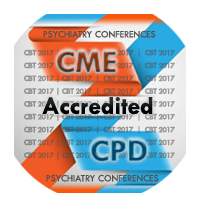17th World Summit on Positive Psychology, Psychotherapy & Cognitive Behavioral Sciences
Toronto, Canada

Andrew Safer
Safer Mindfulness, Canada
Title: Navigating anxiety and stress through mindfulness: Cultivating mindfulness and awareness in a community-based setting
Biography
Biography: Andrew Safer
Abstract
Statement of the Problem: Stress afflicts 23% of Canadians age 15 and over and 30% of adults between 35 and 54, significantly impacting health and well-being, absenteeism, and health care costs. Anxiety disorders, ranging from mild to severe impairment, impact 12% of Canadians. Community-based non-medical alternatives are needed to relieve pressure from the health care system, provide wellness-based solutions that do not rely on medication, and empower the individual to assume a primary role in self-care. The purpose of the 8-week “Navigating Anxiety and Stress through Mindfulness” program is to assist individuals who identify problematic anxiety and/or stress by contextualizing and presenting mindfulness-awareness meditation training and related practices.
Methodology & Theoretical Orientation: Mindfulness training develops precision and accuracy; awareness training fosters openness and a greater connection to the environment. Rather than regarding anxiety and stress as problems to be gotten rid of, participants were coached to relate to these experiences non-judgmentally, with openness, curiosity, and an interest in learning from them. The eight 2.5-hour sessions incorporated mindfulness-awareness meditation, walking meditation, “head and shoulders” (pausing practice), tonglen (compassion practice), and mindfulness-in-everyday-life activities.
Findings: Data from five groups (40 participants) indicated a 40% improvement in scores. Participants’ self-reports indicated significant improvement in: their ability to interrupt storylines (discursive thought patterns), rumination, not being fully present, and their ability to accept things as they are, ranging from 25% to 60%.
Conclusion & Significance: It is evident that participants found mindfulness-awareness meditation and related practices beneficial. Their evaluation responses showed significant understanding of the key elements of mindfulness and that they had begun integrating mindfulness into their lives. The majority developed a regular home meditation practice. The program proved to be viable in a community-based setting.

